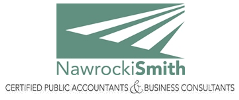Fraud and Employee Theft 101
Published: 4/5/2017 9:25:58 AM
In criminal law, fraud is intentional deception made for personal gain or to damage another individual. Fraud is a crime, but it is also a civil tort under common law.
There are two main types of fraud:
1. Occupational Fraud - The use of one’s occupation for personal enrichment through the deliberate misuse or misapplication of the organization’s resources or assets.
2. Consumer Fraud - Schemes devised to defraud individuals, like identity theft, Ponzi schemes, phishing schemes, and advanced-fee schemes.
The “fraud triangle” is a concept that was first introduced by criminologist Donald R. Cressey. He came up with the fraud triangle while writing his doctoral thesis, in order to explain factors that cause someone to commit fraud.
According to Cressey, three factors are present when an ordinary person commits fraud:
1. Pressure provides the motivation or incentive to commit the crime. Pressure can be caused by any number of things e.g. gambling debt, a drug habit, significant financial loss due to a family member’s illness, peer or family pressure to succeed.
2. Opportunity provides the ability to commit fraud. Opportunity is created by poor internal controls, inadequate supervision, poor recordkeeping, and extreme trust in a single individual. Fraudsters do not want to be caught, so they must conceal their actions and have complete control over their work so as not be discovered. Typically, they do not take long vacations or sick days as they do not want their work to be delegated to a co-worker that may discover the fraud.
3. Rationalization is a crucial component in any fraud. Rationalization is the process a person uses to justify their behavior. Examples of common rationalizations for committing fraud include:
•I’m only “borrowing” the money.
•It’s not that much—the company won’t even miss it.
How do you address the “Opportunity” portion of the Fraud Triangle? INTERNAL CONTROLS
Frauds are perpetrated by people at every level of the organization. For this reason, it’s important for organizations to have strong internal controls and fraud training in place. According to the Association of Certified Fraud Examiners 2016 Fraud Study the following opportunities led to fraud; Lack of Internal Controls in 29% of the frauds studied, Override of Existing Controls in 20%, Lack of Management Review in 19%, Poor Tone at the Top in 10% as well as a host of other reasons. It should be noted that Frauds were exposed by Tip 40% of the time, Internal Audit 17% of the time, Management Review 13% of the time and external audit 4% of the time.
Internal audits, control assessments and fraud awareness training should be routinely conducted.
How can you minimize the risk of fraud in your organization? Please ask Nawrocki Smith.
Nawrocki Smith LLP is a regional public accounting firm based in Melville, New York. If you need help conducting an audit, or for more information on fraud and employee theft, contact us by clicking here.
Nawrocki Smith LLP
290 Broad Hollow Road, Suite 115E
Melville, New York 11747
Email: info@nsllpcpa.com
Sign up for our newsletters
For Email Marketing you can trust.

